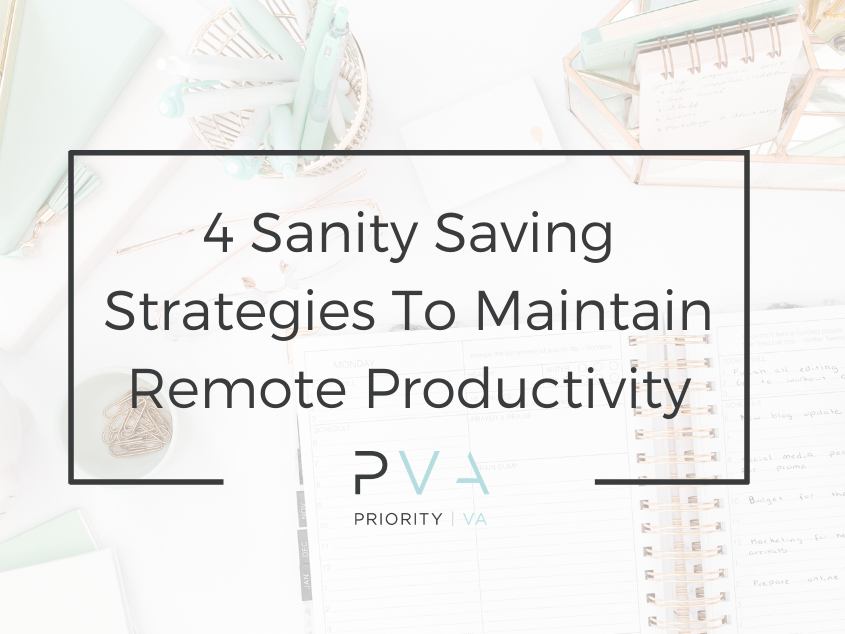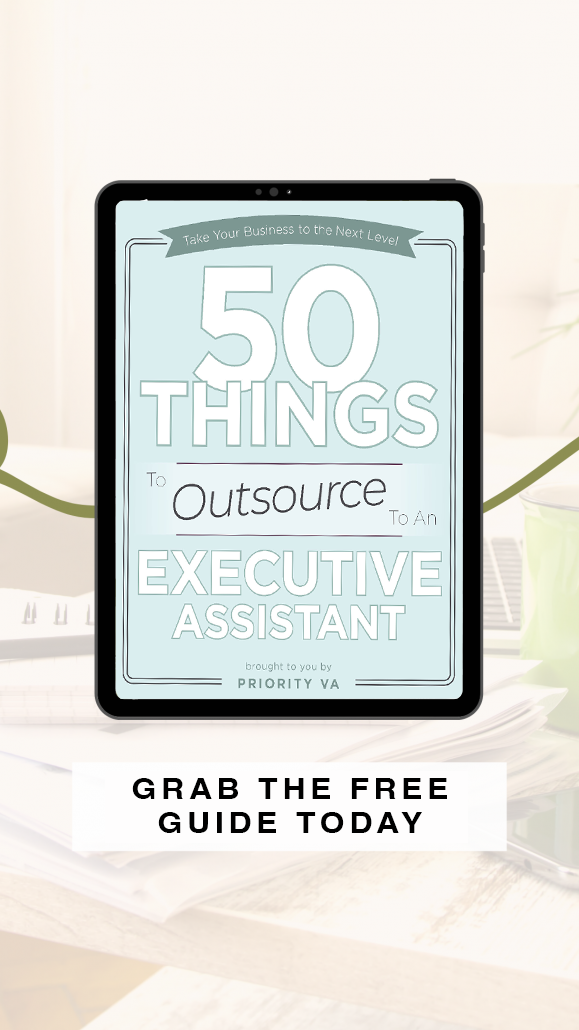Schools and daycares are closed. Kids are home. Parents are now tasked with working remotely, while juggling childcare.
Working from home is already an adjustment. If you are a business owner, leading a remote team requires extra diligence and intentionality.
Remote work becomes an entirely new challenge on parents’ focus and productivity when full-time childcare is unavailable.
During this time of change — and likely, frustration — there are ways to create normalcy and routine (no, really!).
When your sanity is at stake, consider these strategies to maintain remote productivity.
1. Follow Your Routine
You may not be able to drive your children to school or daycare, or make your normal commute to work, but maintain your existing routine as much as possible. Shower, eat breakfast, and fight the temptation to stay in pajamas all day.
Routine helps children feel safe, secure and predictable. These feelings contribute to better behavior around the house (at a time when it is desperately needed).
Depending on the age of your children, you may find it advantageous to get up earlier than they do to accomplish some work or self-care without disruption.
You may also consider adding to your morning routine.
Your priorities likely feel out of sync with the frenzy of Coronavirus news, updates from local businesses, and now, being expected to work while responsible for your children and housework.
A helpful practice is to journal the day’s top priorities — the “must dos” — to keep you on track if nothing else gets done. Then, brainstorm the “may dos” — the items that would be nice to do, but aren’t time sensitive.
Many people struggle with remote work because they feel less productive and focused without familiar office sounds and team members surrounding them.
While your regular work environment is temporarily unavaialble, lean into your routine to put yourself in the best frame of mind for work and to assist with your children’s sense of normalcy.
2. Manage Expectations
There are four sets of expectations you need to manage during this time of disruption: your team’s, your client’s, your children’s and your own.
Team
You are not alone in this situation. Your team members and leaders are likely experiencing a similar disruption in work.
Now is a time to be up-front and honest about your experience and the resources that are available to you. Hopefully, your workplace welcomes transparency, and is a safe place to ask for help.
By communicating your experience, you can help manage your leader’s and team members’ expectations of your performance and hopefully receive some support.
Clients
You’d be surprised how many work-from-home parents testify that clients and sales prospects are extremely forgiving of background noise on phone calls.
Most have families themselves, and aren’t phased by sounds of crying babies, barking dogs, and screaming toddlers. Just give them a heads up, try to take the call in the quietest part of the house (if you are able), and be heavy-handed with the mute button.
Children
If your children are old enough to understand, hold a family meeting.
Discuss with them why you are all home during this time. If you need help speaking with your children about the Coronavirus, here are resources to help.
Explain that just because you, and possibly your partner, are home, does not mean you are on vacation. You still have to work, just like they do.
Communicate your expectations with your children about their behavior. For example, they are expected to focus on homework and chores before they play. Or, that they are not allowed to interrupt Mom and Dad while they have headphones in their ears.
Your Own
Working from home is not like working in an office. You are surrounded by distractions, such as housework, food, and children, and lack a professional environment to keep you accountable.
Do not expect yourself to get more work than usual done during this time of quarantine. In fact, you may not even get as much done as you typically do in an average work week.
Managing expectations sets a standard, but allows for grace and empathy during a time when things don’t feel normal.
3. Connect With Your Children
You are likely feeling very stressed about being quarantined at home with your children, while being expected to work. That is understandable.
But rather than constantly worrying about your work output, which may add to the level of stress in your home, take time to connect with your children.
According to Jackie Flynn, founder and director of Counseling in Brevard, “It’s hard to get work done when everyone is feeling chaotic.”
Slow down and look at this quarantine experience through your children’s eyes. Express empathy and compassion when needed to show them, “I know this is really hard for you.”
Then, if you can, play with them. Play makes your children feel seen and important. Play also contributes to feelings of safety and security, “and supports mental health in a big way,” says Flynn.
It will likely make you feel happier and more relaxed, too.
4. Work Unconventional Hours
Unless otherwise specified by your leader, take advantage of remote work’s flexibility. This means you can structure your day around your peak productivity hours, childcare availability or spouse’s schedule.
Break your work day up into intervals, or timeblocks, that occur before the children wake up, during their nap times or after they’ve gone to bed.
If your spouse is also working from home, coordinate work hours around each other’s schedules. Then, take turns watching the kids.
If your children are young, consider babywearing while working on your laptop from on an elevated desk. Or, schedule important calls while your children watch a movie, or have screen time. (Your team and clients likely won’t mind the background noise.)
If needed, enlist outside help from a relative, babysitter or Mother’s Helper to have longer stretches of uninterrupted time.
Or, work alongside your children at the kitchen table as they do eLearning from home.
One thing to keep in mind is that working unconventional hours tempts you to never stop working. Our advice is to strive to stop work at a reasonable time every night. This not only maintains routine, but creates a boundary between work time and family time, which is often blurred when working from home.
Depending on the age of your children, finding pockets of time for work will be messy. But be encouraged. You will find a rhythm together and get through this messy time as a family.
For more free resources visit http://priorityva.com/coronavirus/

If you’re interested in learning about what an Executive Assistant can do for your business, schedule a strategy call with us.
Our virtual team experts will help you determine how your business can benefit from our Priority Executive Assistants.





